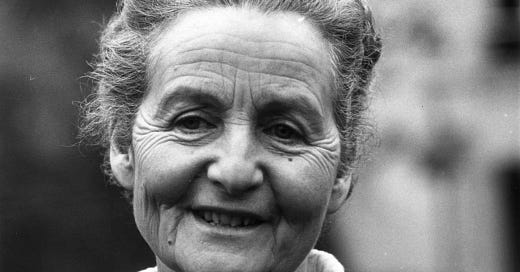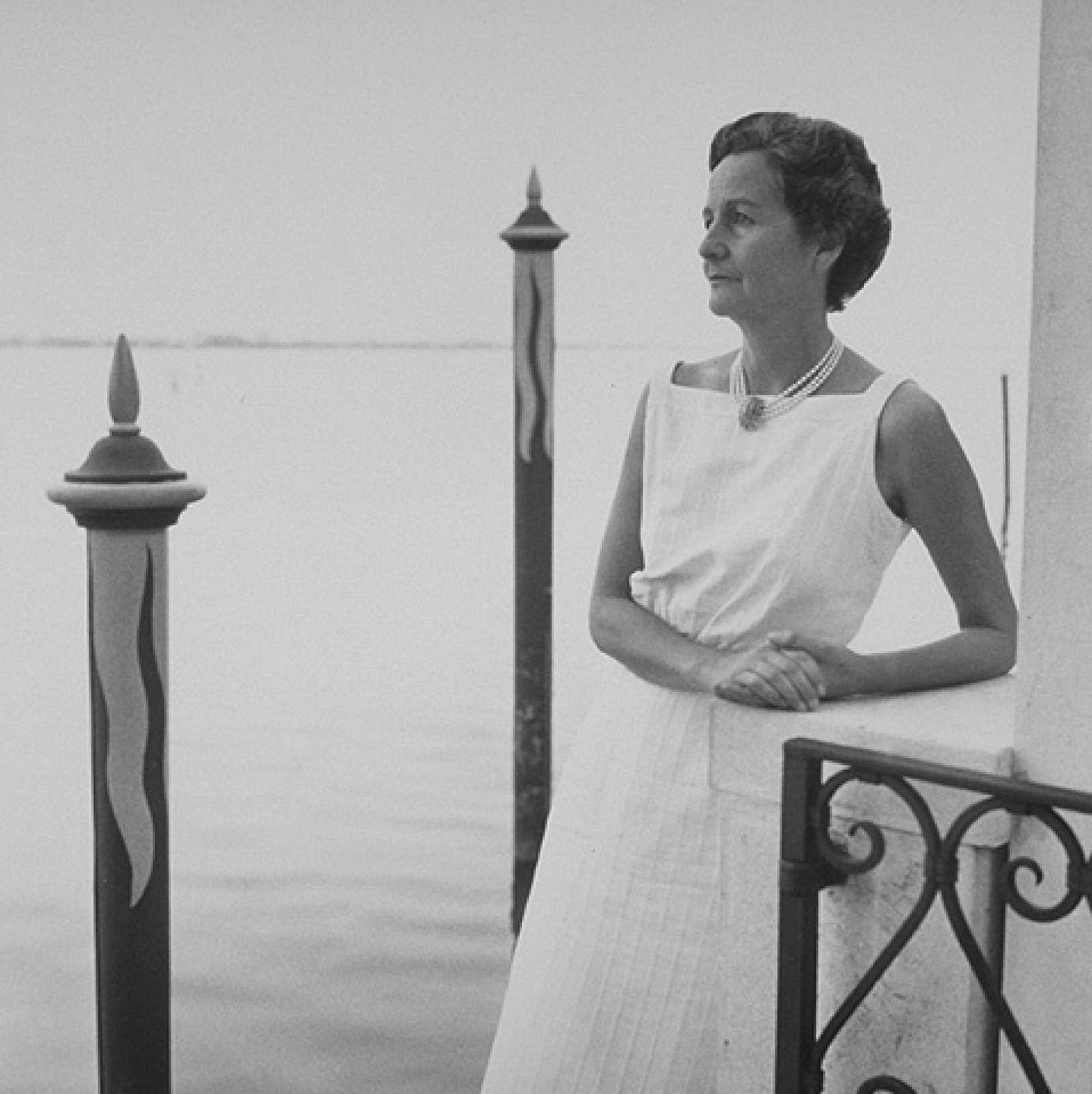Nancy Mitford died fifty-one years ago today.
She was sixty-eight, which now seems nothing, and was indeed young within her generally long-lived family. But my goodness how we remember her: she is one of those figures without whom I feel that my life, my sensibility, would genuinely be different (as would my career: I have written two books about Nancy and her sisters). That authorial voice, as true to itself as a child’s. That iron will to happiness, the creed that ‘there is always something to laugh at’. The sincerity of her levity. The way in which, through her 1945 masterpiece The Pursuit of Love, she offered up that indestructible entity, the Mitfords.
Indestructible indeed… you will probably know that there is a forthcoming TV drama series about the family, which from the writer/ cast etc looks extremely good, with Nancy to be played to be Bessie Carter (although ONE would not be human if one did not mourn another TV drama series, in development for some years, based upon one’s own book and now rendered dead at a stroke… Such is the world of screen. Dreams die very casually.) It is quite amazing, really, that a Mitfords TV show should only now be happening, given that the family saga rivals that of the House of Atreus. In fact such a show was first proposed in 1971; although what one knows of this phantom piece of television fairly boggles the mind.
I learned about it when researching my Nancy biog in the BBC archives, where I read that the then Head of Comedy had proposed a series based upon the Mitford family. Internal memos suggested that this would have ‘the same sort of interest as The Forsyte Saga’, then the venerated holy grail of televisual success, a programme around which people organized their social lives. However: the format for the Mitford show was quite different. The idea was for half-hour programmes, written by a man whose back catalogue included Not in Front of the Children and My Wife Next Door: in other words, a classic 70s British sitcom. Imagine this. Look here, do take off that swastika badge/ stop waving that red flag, the vicar is coming to tea! Less Electra and Iphigenia, more the Hon. Terry and June.
The project stalled because of the difficulty in getting the rights to The Pursuit of Love, sold to film in 1946, but it only really died with Nancy herself. Apparently she had given it her full support. What had she been thinking? How much it would annoy her sisters, upon whom she had always played those teases that some (not me) interpret as evidence of an innate spite? About money, which as a self-made woman she always needed to earn? Or - given her veneration of laughter - did she naturally respond to a proposal from somebody called a Head of Comedy, and envisage jokes as good as her own?
It is doubtful, of course, that she had ever sat in her house at Versailles and actually watched a sitcom.
And by 1971 she was, anyway, very ill.
The previous year she had published her last book, Frederick the Great, which might be called her finest achievement: the final stage of a forty-year journey that had taken Nancy from flimsily-educated writer of sprightly juvenilia to a woman both respected and adored, prepared to traipse across what had been Prussian battlefield sites in the pursuit of research while fighting the cancer, as yet undiagnosed, that had begun to exert its vicious grip: ‘I would like to be a pretty young General and gallop over Europe with Frederick the Great & never have another ache or pain’, she wrote to a friend in 1970. But that sense of physical freedom - she had once described a cavalry charge as her idea of heaven - would never come again.
The last three years of Nancy’s life were cruel - ‘various jokes keep one going’, she wrote to her sister Jessica - not least in the persistent sense of hope that she would be cured of pain so terrible that, as her sister Deborah later recalled, ‘she would just sit up in bed and cry with it’. Like Linda in The Pursuit of Love, who is told ‘you will be a wonderful old lady’, Nancy had seemed to contain an infinite supply of life, and the sense of a random ending is powerful. Her last, supreme act of courage was to see death as the greatest joke of all: to defy and accept it with roars of laughter. ‘It’s very curious, dying, & would have many a drôle amusing & charming side were it not for the pain wh the drs try in vain to control’, she wrote to James Lees-Milne in May 1973. ‘Debo was here for some days – the PRESENCE is so delightful. We had screams over the Will…’
Without doubt other people could summon that spirit - as Nancy herself once said, most are brave when it comes to what she called THE END - but not in quite that way.
What follows is a short extract from the introduction to the original edition of my biography. I took this out when the book was reissued, as it seemed to me outdated, containing as it did a degree of rage against the then-prevalent view of Nancy as a vaguely amusing and slightly unpleasant airhead: a view, I am delighted to say, that seems to have evaporated, although the most recent TV adaptation of The Pursuit of Love displayed much caginess around its subject matter and the novel was recently subjected to a trigger warning, so who knows which way the literary thought police will next turn.
Imagine her and Evelyn Waugh, on all that nonsense.
Anyway: I still rather like this passage, which is in the nature of a tribute to a writer - and personality - who has immeasurably enhanced my life.
Keep reading with a 7-day free trial
Subscribe to Laura Thompson’s Substack to keep reading this post and get 7 days of free access to the full post archives.





